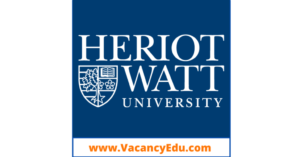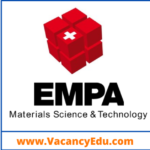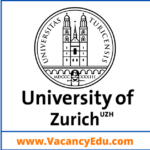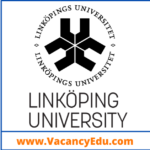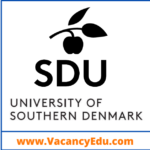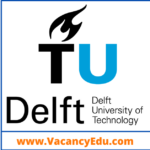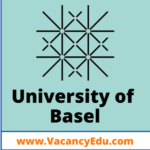Heriot-Watt University, Edinburgh, United Kingdom invites online Application for various Postdoctoral Fellowship in their different Departments. We are providing a list of Postdoc Fellowship positions available at Heriot-Watt University, Edinburgh, United Kingdom.
Eligible candidate may Apply as soon as possible.
(01) Postdoctoral Fellowship Position
Postdoc Fellowship Position summary/title: Research Associate in Signal Processing/Machine Learning for Wireless Communications
A Post-Doctoral Research Associate (PDRA) is needed for a research project, fully funded by the Engineering and Physical Sciences Research Council (EPSRC), initially for 12 months from 1st July 2023 or as soon as possible but can be extended depending on the availability of funding.
The research project COG-MHEAR: Towards cognitively inspired 5G-IoT enabled, multi-modal Hearing Aids funded by UK research council (EPSRC), involves six academic partners including University of Edinburgh and industrial partners including Bell-Labs, Alcatel-Lucent Technologies, USA and Sonova AG. The research will explore and validate the new concept hearing-aid to transform hearing care by 2050, we aim to completely re-think the way HAs are designed. Our transformative approach – for the first time – draws on the cognitive principles of normal hearing. Listeners naturally combine information from both their ears and eyes: we use our eyes to help us hear.
We will create “multi-modal” aids which not only amplify sounds but contextually use simultaneously collected information from a range of sensors to improve speech intelligibility. Adding in these new sensors and the processing that is required to make sense of the data produced will place a significant additional power and miniaturization burden on the HA device. We will need to make our sophisticated visual and sound processing algorithms operate with minimum power and minimum delay, and will achieve this by making dedicated hardware implementations, accelerating the key processing steps.
Deadline : Open Until Filled
(02) Postdoctoral Fellowship Position
Postdoc summary/title: Research Associate in Techno-Economic Analysis of Solvent-Electrochemical Direct Air Capture
We are seeking an excellent, creative, and motivated postdoctoral research associate to work with us on the CALORIE-DAC project. The candidate will independently develop rigorous techno-economic analysis of absorbent-based direct air capture technology with electrochemical sorbent regeneration. Methods used include process modelling, the construction of surrogate models, e.g., via machine learning or traditional mathematical methods, uncertainty quantification, capital and operational costing and integration of the above into comprehensive techno-economic analysis. The candidate will collaborate with other scientists funded through the Homeworld Collective Garden Grants and with Homeworld Collective funders to leverage their knowledge on the use of protein engineering for direct air capture.
We are looking for candidates with a range of skills in the performance assessment of chemical/electrochemical based reaction systems, this may include chemical/process engineering, environmental engineering, electrochemical engineering, mathematical modelling. There are also opportunities to participate in our other projects in CO2 capture, utilisation (and storage) and negative emission technologies (https://rccs.hw.ac.uk).
The successful applicants must hold a PhD (or about to obtain) in chemical/mechanical/environmental engineering, mathematics, or related discipline with background in techno-economic analysis and/or energy/low-carbon system analysis. We will also consider applicants who hold an undergraduate degree with substantial (e.g., industrial) experience in technology design or assessment.
Deadline : 02/15/2024
Looking for more Postdoctoral Positions Click Here
(03) Postdoctoral Fellowship Position
Postdoc Fellowship Position summary/title: Post-Doctoral Research Associate in Next-Generation Sensing using Event-Based Processing and Neuromorphic Computing
The PDRA will work as part of the Prosperity Partnership between Heriot-Watt University, the University of Edinburgh and Leonardo UK. This project aims to address the current limitations of traditional frame-based sensors and associated processing pipelines with a new family of algorithmic architectures that mimic more closely the behaviours of biological brains.
Spiking neural networks (SNNs) can offer increased processing speed and reduced power consumption, especially when implemented on dedicated hardware (neuromorphic chips or FPGAs). Standard SNNs are typically fed with spiking data (e.g., streams of binary values), and the output of each layer remains spiking. They are particularly well suited for several new sensors, such as event-cameras, or single-photon detectors (used for single-photon Lidar), that natively produce event-like data that is compatible with spiking networks. Similarly, detection events from RF (radar and electronic surveillance) sensors can also be seen as temporal events. While data from current sensors can be manually converted into events for fast processing, it is also possible to develop hybrid structures where some layers (such as the input and/or output layer) are traditional (continuous) layers.
SNNs appear promising at the conceptual level but they currently suffer from limitations preventing the broad deployment. First, efficient and scalable training procedure are still needed, irrespective of whether the training is done off-line on a traditional GPU-based architecture, on neuromorphic hardware. Second, deployment of SNNs on actual neuromorphic hardware can come with additional structural constraints on the SNNs, such that quantization of the network weights which induces additional constraints on the training strategies.
Deadline : 02/17/2024,
(04) Postdoctoral Fellowship Position
Postdoc Fellowship Position summary/title: Research Associate in Laser Frequency Comb Technologies for Astronomy
High-resolution spectroscopy is vital to optical astronomy, and for decades, astronomers have used atomic emissions from hollow-cathode lamps to calibrate the spectrographs in optical telescopes. The limitations of such light sources mean that the community is now turning to astrocombs, which provide a sequence of ultra-narrow, drift-free, regularly spaced optical frequencies on a selectable multi-GHz grid. Uniquely, astrocombs must exhibit broad spectral coverage and wide inter-mode spacings, a technically demanding requirement that has limited the number of on-sky installations
In this context, Heriot-Watt’s Ultrafast Optics Group is seeking to recruit a full-time post-doctoral researcher from 1 November 2024 on a 36-month contract at Grade 7 to work on an STFC-funded project developing new concepts in astrocomb technologies and calibration. Based at Heriot-Watt’s Edinburgh Campus, in the School of Engineering and Physical Sciences, the Ultrafast Optics Group is a diverse, multi-national research team developing ultrafast laser sources for spectroscopy, metrology, and astrophotonics.
Deadline : 02/20/2024
(05) Postdoctoral Fellowship Position
Postdoc Fellowship Position summary/title: Research Associate in Diode-Pumped Ti:Sapphire Laser Frequency Combs for Astronomy
Astronomers use high resolution spectrographs to record the pattern of colours received from distant objects, but the wavelength axes of these instruments can shift slightly over time, and so must be regularly calibrated with an external reference light source to ensure consistency between observations. The emerging light sources of choice are astrocombs, a laser technology giving a sequence of ultra-narrow, drift-free, regularly spaced optical frequencies on a selectable grid spacing of 5-50 GHz. When referenced to GPS time, astrocombs provide atomically traceable optical frequencies with near-Hz-level precision. Current astrocombs are complex and expensive, and their limited reliability requires regular maintenance. Work in Heriot-Watt’s Ultrafast Optics Group seeks to address these issues by developing a new, simple and robust astrocomb platform based on diode-pumped Ti:sapphire laser. We are seeking to recruit a full-time post-doctoral researcher from 1 May 2024 on a 24-month contract at Grade 7 to work on an STFC-funded project to develop such lasers.
Based at Heriot-Watt’s Edinburgh Campus, in the School of Engineering and Physical Sciences, the Ultrafast Optics Group is a diverse, multi-national research team developing ultrafast laser sources for spectroscopy, metrology, and astrophotonics.
Deadline : 02/20/2024
Click here for “Postdoc Application Cover Letter Template”
Click here to know “How to write a Postdoc Job Application or Email”
(06) Postdoctoral Fellowship Position
Postdoc Fellowship Position summary/title: Research Associate in Ocean Biogeochemical Modelling
The successful candidate will be part of the Ocean Carbon-And-Nutrient-Dynamics (Ocean-CANDY) research group at the Lyell Centre, working on the Horizon Europe and UKRI (Innovate UK) funded project ‘Ocean-ICU’ (Ocean-Improving Carbon Understanding; https://ocean-icu.eu). The Ocean-ICU project aims to produce new data, information and understanding of the role of the ocean in the global carbon cycle. This position is in support of two Ocean-ICU work packages: WP2, Current state of the ocean carbon cycle; and WP3, Impact of climate stressors on the Biological Carbon Pump. The work planned is a collaboration between LSCE (Laboratoire des Sciences du Climat et de l’Environment, Paris) and the University of Exeter (Exeter Marine and Atmospheric Science group), and will involve a number of extended visits to these institutions.
The candidate will explore how biogeochemical model parameterizations of pelagic calcium carbonate producing organisms in terms of biodiversity and dissolution of their carbonate tests influences ocean alkalinity. The candidate will parameterize different types of pelagic calcifiers and diversity of their dissolution rates in the NEMO-PISCES (Nucleus for European Modelling of the Ocean, Pelagic Interaction Scheme for Carbon and Ecosystem Studies) in order to test how modeled alkalinity reconstructions can better match alkalinity observations (e.g., from the Global Ocean Data Analysis Project). Exploring dissolution rates of different pelagic calcifiers will help to highlight how biology impacts the Carbonate Counter Pump, as well as identify potential abiotic or biotic mechanisms impacting alkalinity profiles in the ocean.
Deadline : 03/01/2024
(07) Postdoctoral Fellowship Position
Postdoc Fellowship Position summary/title: Research Associate in Coccolithophore Biology
The successful candidate will be part of the Ocean Carbon-And-Nutrient-Dynamics (Ocean-CANDY) research group at the Lyell Centre, working on the UKRI (NERC) funded project ‘Coccolithophore controls on ocean alkalinity’ (CHALKY) with Prof. Alex Poulton. The CHALKY project is part of NERC’s BIO-Carbon strategic programme (https://bio-carbon.ac.uk/node/32), examining how coccolithophore ecology (growth and death) regulates alkalinity in the upper ocean. The central hypothesis of the CHALKY project is that high coccolithophore mortality rates, via viral lysis and zooplankton grazing, retain the alkalinity associated with coccolithophore calcite production in the upper ocean.
The candidate will examine variability in coccolithophore physiology (net growth rates, cell-specific and species-specific calcite production, coccolith production rates) and species composition in the context of nutrient availability and along natural temperature gradients. The candidate will assess coccolithophore species abundance and cellular calcite quotas from preserved water column and experimental samples collected during field work to the Iceland Basin in summer 2024. Experimental work during the field work will examine growth and grazing rates from dilution experiments and coccolithophore responses to nutrient addition (nitrate, phosphate, iron). Abundance and cell calcite data will be combined with calcite production measurements collected on the cruise to examine coccolithophore physiology, and then analyzed with ancillary nutrient and environmental data from the water column and experiments.
Deadline : 03/01/2024
(08) Postdoctoral Fellowship Position
Postdoc Fellowship Position summary/title: Research Associate in CFD modelling of reactive transport in geomaterial related to radioactive waste disposal systems
The School of Energy, Geoscience, Infrastructure and Society is one of the UK’s leading institutions for multidisciplinary research and teaching in areas critical to economic development and societal equity. We aim to attain excellence in the teaching of the core disciplines that contribute to a sustainable, resource and energy efficient society and are committed to undertaking high value, high impact research and knowledge transfer in topics of relevance to global challenges.
The School enjoys facilities consistent with its location in modern, purpose-built accommodation on the Edinburgh campus. The School is well equipped in respect of laboratories for materials, structures, engineering, building services and hydraulics research and teaching. Our research and teaching facilities in Dubai and Malaysia are contained within purpose-built campuses in Dubai Academic City and Putrajaya, respectively.
Deadline : 03/14/2024,
Click here to know “How to Write an Effective Cover Letter”
(09) Postdoctoral Fellowship Position
Postdoc Fellowship Position summary/title: Research Associate
The post will be in the Interaction Lab at Heriot-Watt University’s School of Mathematics and Computer Science (MACS), see http://www.macs.hw.ac.uk/InteractionLab. The successful candidate will join a group of about 20 people, consisting of postdoctoral and PhD researchers and faculty with expertise in NLP, NLG, Ethics in AI, Reasoning, Generative AI, Multimodal and Embodied AI, machine learning, and conversational interfaces. The project affiliated with this position is part of a successful series of projects in Ethics in NLP and involves the close collaboration with 6 members with an expertise in NLP, NLG, Ethics, Multimodality, Generative AI, and Psychology. It also involves collaborations with the University of Edinburgh (main collaborator; Social Science, and Education), as well as numerous charities focused on Gender-Based Violence including “EmilyTest”, and “End Violence Against Women”. We also have established and ongoing collaborations with the Alan Turing Institute , Bocconi University Milan, Fondazione Bruno Kessler, University of Turin, Amazon Science, and Google Research.[IK1] We also competed in the Amazon Alexa Challenge 2017 and 2018, on conversational AI, having reached the final on both occasions, and competed in the Simbot Alexa Challenge in 2022/3. We have also recently spun-out a conversational AI company, Alana AI (see www.alanaai.com).
The advertised position will be part of the “Equally Safe Online” EPSRC-funded project (EP/W025493/1). The focus is on Ethics In AI, NLP, and Generative AI methods for identifying, and mitigating instances of online gender-based violence (GBV). To achieve this, we will build on our success in the EPSRC project “Designing Conversational Assistants to Reduce Gender Bias” (EP/T023767/1). In contrast to previous approaches to address GBV and other similar societal issues, we follow a co-creating approach with experts and stakeholders in the field (aka social scientists, 3rd sector charities on GBV). In other words, we do not only focus on *how* to automatically detect online abuse, but also re-think *what* it is we need to detect, how we can *support* the victims and how to *prevent* online GBV through promoting digital citizenship (i.e. prevention and intervention aimed at perpetrators and bystanders).
Deadline : 02/27/2024
Connect with Us for Latest Job updates
(10) Postdoctoral Fellowship Position
Postdoc Fellowship Position summary/title: Research Assistant/Associate in High Speed Photonic Beam Shaping
The appointed individual will work on the development of technologies for non-mechanical beam steering, developing systems integrating complex 3D waveguide circuits fabricated using ultrafast laser microfabrication techniques. The post will also explore the testing of complete non-mechanical beam steering systems once these systems reach an appropriate stage of development.
Deadline : 02/12/2024
(11) Postdoctoral Fellowship Position
Postdoc Fellowship Position summary/title: Research Associate in Techno-Economic Analysis of Climate Change Mitigation Technologies
We are seeking an excellent, creative, and motivated postdoctoral research associate to work with us on the techno-economic analysis of a range of greenhouse gas mitigation projects. The two projects are:
ConsenCUS, an H2020 funded CO2 capture and utilisation Project. This major EU project aims to develop and pilot innovative electrolysis-based CO2 capture and conversion technologies that will be scaled up and tested at three industrial sites across Europe, bringing the technology to TRL7. The technology development will be complemented by extensive supply chain and network optimisation, process model development and simulation, and techno-economic, life cycle, and societal analysis. The PDRA will work internationally with project partners to: 1) perform simulations to steer plant design & integration with natural gas-fired combined heat and power plants; 4) undertake techno-economic analysis of the capture and conversion technologies to identify cost-optimum solutions.
Deadline : 03/01/2024
Polite Follow-Up Email to Professor : When and How You should Write
(12) Postdoctoral Fellowship Position
Postdoc Fellowship Position summary/title: Research Associate in Bacterial Production of Biobased Molecules
The Institute of Biological Chemistry, Biophysics and Bioengineering and Institute of Life and Environmental Sciences at Heriot-Watt University are seeking to hire a PDRA for three years in production of bacterial polysaccharides and biosurfactants.
This position is part of the TOLERATE Horizon Europe project. TOLERATE is a €5M, 14 partner project that aims to develop novel strategies to improve the drought tolerance of plant crops. Our partners in TOLERATE will analyse ancient DNA from environmental samples that represent a geological timespan from the present day back to several hundred thousand years in the past. They have already identified and reconstructed the genes for humidifying polysaccharides and osmolytes from bacteria that lived in times of extreme (high) temperatures during past geological times.
The reconstructed ancient gene sequences from rhizosphere bacteria that code for climate tolerant traits (humidifying polysaccharide, osmolytes, biosurfactants) will be engineered into modern soil bacteria by another TOLERATE partner. At Heriot-Watt, the PDRA will be contribute to four tasks of the project, (i) expression of climate tolerance genes in heterologous hosts for production of biobased chemicals; (ii) fermentation optimization and scale up, (iii) functionality testing of biobased chemicals; and (iv) bioaugmentation studies. They will carry out small (shake flask), intermediate (5L fermenter) and pilot scale (15L and 30L fermenter) fermentations using engineered soil bacteria provided by one of the project partners. The aim here will be to establish optimised and scalable fermentation and downstream separations processes (for polysaccharides, biosurfactants and other molecules) to produce enough of these molecules for two applications. First, the engineered bacteria will be used in bioaugmentation studies where they will be added to soil to produce polysaccharides that confer climate (drought) tolerance to plant growth. Secondly, the produced biomolecules will be tested for functional properties relevant to TOLERATE consortium partner end uses (biomedical and detergency) as well as general properties relevant to other consumer products (emulsification, foaming and gelation).
Deadline : 02/21/2024
(13) Postdoctoral Fellowship Position
Postdoc Fellowship Position summary/title: Research Associate in Autonomous Fabrication and Metrology of Moiré Materials
The Quantum Photonics Laboratory seeks a talented scientist to undertake research on the development of a fully autonomous pilot-line for van der Waals (vdW) heterostructure device manufacturing. Significantly, the goal of the project is to achieve high-quality, reproducible, and deterministic layer-by-layer assembly of so-called moiré materials, with homogeneity at the quantum scale. The project will combine robotic control of all assembly steps with efficient computer-vision, machine intelligence algorithms, and the in-situ metrology techniques.
The research associate will focus in-depth. We will develop and integrate the tools into a complete state-of-the-art autonomous 2D manufacturing system with a user-friendly interface. The projects will be conducted within the framework of a European Research Council Advanced Grant which aims to drive forward programmable moiré materials with quantum-level homogeneity and reproducibility. We will particularly target devices which offer reproducible physical effects including emergent phases of strongly correlated matter that are extremely sensitive to quantum interactions and hence device homogeneity. A significant goal is to demonstrate that we can engineer and probe strongly correlated states and directly link the structural properties to the emergent phase diagrams.
Deadline : 02/16/2024,
(14) Postdoctoral Fellowship Position
Postdoc Fellowship Position summary/title: Post-Doctoral Research Associate in Design and Manufacturing Processes for Advanced Sensing Systems for Security and Defence Applications
The Post Doctoral Research Associate (PDRA) will work on the project “Complete Additive Manufacturing of a Laser Chassis” which is part of the “Making Challenge” of the “Smart Products Made Smarter” (EPSRC funded EP/X025365/1) Prosperity Partnership between Heriot-Watt University, University of Edinburgh, and Leonardo UK.
This major project of the partnership is focused on the design, manufacture, and test of a future industrial laser chassis, utilising powder-bed laser fusion metal additive manufacturing (AM) and advanced laser-based manufacturing. The project is split into three areas: 1. Optical, mechanical, and thermal design of a compact and robust laser, exploiting the existing capabilities of additive manufacturing; 2. Testing and analysing new concepts on metal 3D printed parts; 3. Developing and demonstrating laser-based processing of additively manufactured parts, specifically laser-based polishing of AM parts and ultra-fast-laser-welding of optical laser components to AM parts.
The project is in close collaboration with Leonardo engineers, who will jointly execute some of the project tasks.
The successful candidate will be required to rapidly embrace the body of knowledge vested in the research teams and will grasp the technical challenges of designing and developing a complete additively manufactured laser chassis.
Deadline : 02/17/2024
(15) Postdoctoral Fellowship Position
Postdoc Fellowship Position summary/title: Post-Doctoral Research Associate in Configurable Machine Learning Approaches to Robotic Optimisation of Complex Optical Systems
The Post Doctoral Research Associate (PDRA) will work on the project “Robotic Assembly and Maintenance” which is part of the “Manipulation Challenge” of the “Smart Products Made Smarter” (EPSRC funded EP/X025365/1) Prosperity Partnership between Heriot-Watt University, University of Edinburgh, and Leonardo UK.
Laser systems are typically highly engineered and complex with tens of components required to be positioned to sub-micron accuracy. Although significant resource is spent in tolerancing and assembly engineering there is still a requirement for the exact positioning of optical components to be aligned, most often through an active alignment process by skilled engineers.
This major project of the partnership is focused on automating the alignment process for these complex systems. Drawing upon the results and expertise developed within a major three year interdisciplinary UK Government funded project (EPSRC funded EP/V054497/1 “Developing Machine Learning-empowered Responsive Manufacture Of Industrial Laser Systems”) this project aims to create and demonstrating a robust, flexible, industrial system capable of carrying out alignment tasks autonomously.
The project is split into four areas: 1. Automated alignment strategies and autonomous system control; 2. Laser systems design for automation; 3. Digital twining and manufactured systems view; 4. Robotic and mechatronic systems.
The project is in close collaboration with engineers from Leonardo and the National Robotarium (based at Heriot-Watt University), who will jointly execute some of the project tasks.
Deadline : 02/17/2024
About Heriot-Watt University, Edinburgh, United Kingdom – Official Website
Heriot-Watt University (Scottish Gaelic: Oilthigh Heriot-Watt) is a public research university based in Edinburgh, Scotland. It was established in 1821 as the School of Arts of Edinburgh, the world’s first mechanics’ institute, and subsequently granted university status by royal charter in 1966. It is the eighth oldest higher education institute in UK. The name Heriot-Watt was taken from Scottish inventor James Watt and Scottish philanthropist and goldsmith George Heriot.
Known for its focus on science and engineering, it is one of the 39 old universities in the UK comprising the second cluster of elite universities after Oxbridge.
Heriot-Watt was established as the School of Arts of Edinburgh by Scottish businessman Leonard Horner on 16 October 1821. Having been inspired by Anderson’s College in Glasgow, Horner established the School to provide practical knowledge of science and technology to Edinburgh’s working men. The institution was initially of modest size, giving lectures two nights a week in rented rooms and boasting a small library of around 500 technical works. It was also oversubscribed, with admissions soon closing despite the cost of 15 shillings for a year’s access to lectures and the library.
The School was managed by a board of eighteen directors and primarily funded by sponsors from the middle and upper classes including Robert Stevenson and Walter Scott. It first became associated with the inventor and engineer James Watt in 1824, as a means of raising funds to secure permanent accommodation. Justifying the association, School Director Lord Cockburn said:
Disclaimer: We try to ensure that the information we post on VacancyEdu.com is accurate. However, despite our best efforts, some of the content may contain errors. You can trust us, but please conduct your own checks too.
Related Posts
- Postdoctoral Fellowship (03) at EMPA, Zurich, Switzerland

- Postdoctoral Fellowship (14) at University of Zurich, Switzerland

- Postdoctoral Fellowship (04) at Maastricht University, Netherlands

- Postdoctoral Fellowship (09) at Groningen, Netherlands

- Postdoctoral Fellowship (05) at Linkoping University, Sweden

- Postdoctoral Fellowship (17) at University of Southern Denmark, Denmark

- Postdoctoral Fellowship (28) at University of Cambridge, United Kingdom

- Postdoctoral Fellowship (13) at Delft University of Technology (TU Delft), Netherlands

- Postdoctoral Fellowship (09) at University of Basel, Switzerland


